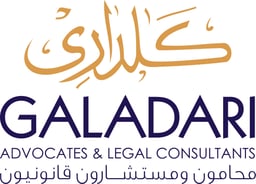Decision 701 of 2025: Key Insurance Requirements Every Mediation Centre Must Know
In furtherance of enhancing the regulatory framework governing mediation services in the United Arab Emirates, the Minister of Justice issued Decision No. 701 of 2025 on the Regulations for Submitting a Professional Liability Insurance Policy by Private Mediation Centres and Branches of Foreign Mediation Centres “Decision”.
This Decision forms part of the UAE’s broader efforts to strengthen professional accountability, protect service users, and reinforce confidence in alternative dispute resolution mechanisms.
It is worth noting that the UAE Cabinet issued Resolution No. (56) of 2025 regarding Private Mediation Centers and Branches of Foreign Mediation Centers in May 2025. The Resolution marks the beginning of a comprehensive regulatory framework governing the operations of mediation centers. It applies to private mediation centers and branches of foreign mediation centers licensed to provide civil and commercial mediation services within the State. However, it expressly excludes private mediation centers and branches of foreign mediation centers licensed to operate within financial free zones, unless they conduct mediation activities outside those zones.
The Resolution further specifies the legal form that a private mediation center must adopt, in addition to setting out the procedures for obtaining licensing approval and the conditions required for licensing a private mediation center or a branch of a foreign mediation center. These conditions include, among others, the obligation to submit a valid professional liability insurance policy.
Further, with the issuance of Minister of Justice Decision No. (701) of 2025, the obligations imposed on licensed mediation centers to maintain adequate professional liability insurance coverage valid throughout the entire licence period have been clearly articulated and formalized. By introducing standardized insurance requirements, the Ministry of Justice seeks to align mediation practices with international best standards, enhance regulatory transparency, and safeguard the rights and interests of parties who resort to mediation as an efficient and credible dispute resolution mechanism.
The Decision sets out specific conditions governing the required insurance policy. Notably, the policy must be issued by an insurance company licensed in the United Arab Emirates. The minimum insurance coverage must not be less than AED 1,000,000 per annum for a private mediation center and AED 2,000,000 per annum for a branch of a foreign mediation center. Furthermore, the policy must cover professional errors and omissions committed by the private mediation center or the branch of a foreign mediation center, as well as by their employees, in the course of performing their assigned duties.
According to the Decision, the insurance policy must be renewed at least thirty (30) days prior to its expiry and must be free from any conditional terms. It may not be cancelled during the licence period except with the prior approval of the Committee for Licensing Private Mediation Centres and Branches of Foreign Mediation Centres, established pursuant to Ministerial Resolution No. (383) of 2025 (the “Committee”), or where the mediation centre’s licence has been cancelled.
Furthermore, the insurance policy must include a provision obligating the insurance company to pay the insured amount to the beneficiary within thirty (30) days from the date of submission of a valid claim requesting payment of the adjudicated insurance amount. Such payment shall apply in cases involving, inter alia, damage to documents related to the mediation work, negligence, breach of trust, deception, disclosure of confidential commercial information, defamation, or any other professional errors committed in the course of performing professional duties.
It is worth highlighting that any application submitted by a private mediation center or a branch of a foreign mediation center, whether for the issuance or renewal of a licence, shall not be accepted unless it is accompanied by a professional liability insurance policy valid for the entire licence term. This requirement constitutes a mandatory condition for licensing and renewal.
In addition, the private mediation center or the branch of the foreign mediation center is required to promptly notify the Committee of any amendment, renewal, or change affecting the insurance policy, ensuring continued compliance with the applicable regulatory requirements.
The Decision represents a significant step in strengthening the regulatory framework governing private mediation centers and branches of foreign mediation centers in the UAE. By clearly defining the scope, conditions, and continuity of professional liability insurance obligations, the Decision reinforces professional accountability and enhances protection for parties engaging in mediation.
14 January 2026
